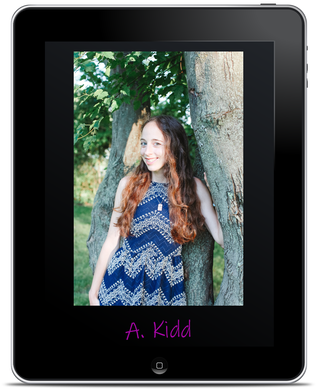 Would you like to get to know more about how the inner book brain of an Indie Author works? This is the place! Periodically, we'll invite an Indie Author to open up their brain, and show us inside. We'll have a conversation that deals a little bit with writing craft, reading influences, and some other fun stuff. Today, we thumb through the pages of Indie Author A. Kidd's grey matter... Discover More About A. Kidd HERE! What literary pilgrimages have you gone on?
When I was working as a full-time librarian, I went on an artist retreat. At that time, I had recently had a jogging accident where I literally fell on my face while running. It made me question my life’s purpose. This retreat helped me trust my feet again and my words. I decided to pursue writing and illustrating as a career after that. I also had the pleasure of attending the SCBWI summer conference in LA as well as other writing conferences. What is the first book that made you cry? Where the Red Fern Grows What is your writing Kryptonite? Summer, because I’d rather be outside playing. But mostly self-doubt (I constantly battle the inner critic). I even wrote a poem about it called The Panic Bird. Do you want each book to stand on its own, or are you trying to build a body of work with connections between each book? I want each book to have its own journey and takeaway, but I’m interested in writing a series too. How did publishing your first book change your process of writing? It gave me confidence, especially to take chances. As a writer, what would you choose as your mascot/avatar/spirit animal? The great horned owl or sea turtle. What did you edit out of your books? (keep it family-friendly, please) Clichés and happy endings. What one thing would you give up to become a better writer? I don’t believe in giving things up for writing. I find a way to write no matter what and can’t stop even if I tried. But once again, I think letting go of self-doubt will serve me the best. What is your favorite childhood book? The True Confessions of Charlotte Doyle, Mrs. Piggle Wiggle’s Magic, and Who Stole the Wizard of Oz. What is the most difficult part of your writing process? Maintaining my vision while revising; listening to advice but trusting my intuition. What is the easiest part of your writing process? Ideas; coming up with characters. How long on average does it take you to write a book? One year to write. Revising time varies and can last several years! A common misconception entwined with authors is that they are socially inept, how true is that? I think writers are very busy creating worlds inside their head, so that the outer world or “real world” becomes secondary and sometimes even intrusive. I personally love to socialize but not necessarily in big groups. When did it dawn on you that you wanted to be an author? At age 3 or 4, I was telling my mom stories which she wrote down while I painted the pictures. I wrote my first dialogue in second grade. In 5th grade, I attended a young authors conference, and I also wrote my first complete story including making my own book with an author page. Who are your biggest literary influences? Toni Morrison, Francesca Lia Block, Sharon Creech and many others. I grew up loving all the portal stories like Narnia and Alice in Wonderland and was very captivated by The Wicked Witch of the West. What’s your favorite movie which was based on a book? Why? Usually movies never live up to the books, but I thought Howl’s Moving Castle and The Never-ending Story were both better as movies. The same for Gulliver’s Travels and Wizard of Oz. I also enjoyed the Canadian miniseries for Anne of Green Gables and the BBC version of Pride and Prejudice. How did it feel when your first book got published? How did you celebrate? It was gratifying on a soul level to see my childhood dream come true. I celebrated with a trip to Portland and then again at my book launch at Baldwin Public Library. What is that one thing you think readers generally don’t know about authors? That a book is a process, not a product. It just doesn’t come into being. It takes years of hard work, thinking, contemplating, writing, and rewriting. It involves playing with words plus blood, sweat, and tears. A baring of the soul. Everyone thinks they can write a book. But it isn’t as easy as it looks. The effortlessness of reading some stories is the mark of a lot of effort on the part of the writer. Can you tell us about your current projects? I’m revising an environmental dystopian YA in dual perspectives. I also have another MG fantasy with a fairytale twist percolating about a girl born during a hurricane in search of her parents. Readers have been asking for a sequel to The Healing Star, so I’m considering that as well. Are you attending any conventions/festivals where readers can meet you and/or buy your books? Please provide all the “find it” information. I will be participating in a virtual author visit at Berkley Library for summer reading this Monday July 13th at 2pm. I also hope to be at Leon and Lulu’s Books and Authors in October and the Brighton District Library Author Showcase Sunday November 8 from 2-4, but it depends on how the pandemic progresses. Please provide links and/or instructions about how readers can purchase signed copies of your books. To purchase a signed copy, email me at [email protected] or message me through my FB author page: a.kiddwrites. Any advice you would like to give to aspiring authors? Don’t give up. Write what you want to write. What you know or what you want to know. How you see the world or how you wish the world could be. Write what lights you up or what scares you. Don’t be afraid to play with words and take chances. We are all at our very core a collection of stories. Write something that can lift someone else up or even change the world.
0 Comments
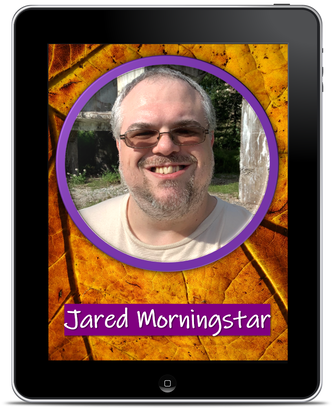 Would you like to get to know more about how the inner book brain of an Indie Author works? This is the place! Periodically, we'll invite an Indie Author to open up their brain, and show us inside. We'll have a conversation that deals a little bit with writing craft, reading influences, and some other fun stuff. Today, we thumb through the pages of Indie Author Jared Morningstar's grey matter... Discover More About Jared Morningstar HERE! What literary pilgrimages have you gone on? My favorite literary pilgrimages I have been on are absolutely my two trips down old Route 66 from Chicago to Santa Monica. The Grapes of Wrath is my all-time favorite novel, and following the same path across the country as the Joad family is really surreal, especially when you get out west and occasionally see a rusted out jalopy alongside an abandoned stretch of the old highway. What is the first book that made you cry? Is it terrible that a book has never made me cry? Again, the closest I have ever come is reading Tom Joad’s goodbye scene in The Grapes of Wrath. The scene and the whole novel is emotionally moving. What is your writing Kryptonite? Self-Doubt. When you have a serious case of impostor syndrome, the struggle is real. Do you want each book to stand on its own, or are you trying to build a body of work with connections between each book? I only currently have one book: a collection of poems and short stories. I can’t ever see myself writing anything that resembles a series, but since my personal creative aesthetic is all over everything I write, it may seem like there are at least thematic and visual connections between all of the pieces that I write. How did publishing your first book change your process of writing? I will be far more patient next time. I did a lot of editing, and I realize now that I make far more mistakes than I care to admit. To save the embarrassment, I plan on taking a lot more time to make sure things are right before submitting a manuscript. As a writer, what would you choose as your mascot/avatar/spirit animal? Well, this is a fun question. Can I say rock pioneer Chuck Berry driving a ‘57 Chevy? What did you edit out of your books? (keep it family-friendly, please) I mostly just spent time cleaning up a few plot details that weren’t consistent. Occasionally, I’d make adjustments to characters, but most of my content edits involved minor plot changes. What one thing would you give up to become a better writer? A better writer on the level of George Saunders, Allen Ginsberg, or Flannery O’Connor? My left hand. Well, maybe not the whole hand. Likely a finger or two though. What is your favorite childhood book? My favorite book from my early childhood was Cloudy with a Chance of Meatballs. I loved hearing stories of awesome faraway places. And food. My favorite book from my tween years though was The Outsiders. I loved the characters, the drama, and the 1950s culture. What is the most difficult part of your writing process? Getting started. It’s not the motivation; it’s the impostor syndrome I mentioned. I often get ideas I love, but I always hear this voice that tells me I don’t have the ability to deliver on those ideas. Once I get going, though, things are easier. What is the easiest part of your writing process? Honestly? Revising and editing. I am sure that isn’t a common answer, but I find that once I have finished a piece, I don’t feel nearly as much pressure, and I enjoy re-reading my work to figure out what works and what doesn’t so I can do what I have to do to make the piece better. How long on average does it take you to write a book? Well, the first one took 16 years, so I sure hope it won’t be that long next time! I can’t see myself writing a novel, so it all depends on how productive I am in writing new poems and stories. I am not always the most prolific writer, but I do hope that it won’t be nearly as long before the next collection is finished. A common misconception entwined with authors is that they are socially inept, how true is that? I mean, I am not the most socially-capable person, but I wouldn’t say I am socially inept either. And my wife, who is also a published writer and poet, certainly isn’t. So, I don’t think it’s true, even if I’d rather observe the world sometimes instead of talk all the time. When did it dawn on you that you wanted to be an author? Not until college when I started taking creative writing classes. I still consider myself more of a creative writing teacher than a writer, but I am enjoying writing now more than I ever have. Who are your biggest literary influences? John Steinbeck for sure. He was such a brilliant writer and thinker, as well as a stone-cold realist. So too were the Southern Gothic writers from the early-mid 20th century whose works I love beyond words: Faulkner, O’Connor, Welty, McCullers, Hurston, Capote, Tennessee Williams, etc. All of them used their voice to speak out against flaws in society, which I think is so important. A lot of my favorite poets did or are doing the same thing: Ginsberg and the entire Beat Generation comes to mind quickly. So too do Nikki Giovanni, Kevin Coval, Sherman Alexie, Joy Harjo, Rudy Francisco, Nate Marshall, Clint Smith, and Luis J. Rodriguez. There is also an incredible Detroit-based poet whose work I love by the name of John Jeffire. He writes about the Rust Belt so well, and I am a sucker for anything Rust Belt. Finally, music is always a huge inspiration. Whether it’s '50s rock and roll, the vulnerability of Hank Williams Sr., the storytelling of Bruce Springsteen, or the honesty of Jason Isbell, I know I can always put on a record whenever I need to feel creative. What’s your favorite movie which was based on a book? Why? High Fidelity is such a great book-to-movie translation. So too is Stranger than Fiction. Those two come to mind first. How did it feel when your first book got published? How did you celebrate? It was unreal. It’s been over a month, and it still doesn’t feel real. The day I signed my book contract, my family and I enjoyed some good barbecue and an ice cream cake from Dairy Queen. It was great. What is that one thing you think readers generally don’t know about authors? I hate to speak for all authors, but I don’t think all readers understand that even though a little bit of us makes it into anything we write, the main character isn’t always us. Even in first-person poetry. Can you tell us about your current projects? I am currently writing stories and poems and plan on submitting them as individual pieces to literary journals. Eventually, those will be collected and put into my next book. Another project I am looking forward to is the publication of Young Voices, an international anthology of teenage short fiction that I worked on as a guest editor for Culture Cult Press. Are you attending any conventions/festivals where readers can meet you and/or buy your books? Please provide all the “find it” information. Well, COVID-19 has put a halt on my plans for most author events for the time being, though I hope to perhaps participate in some virtual events in the near future. Please provide links and/or instructions about how readers can purchase signed copies of your books. I’d ask readers to email me ([email protected]), and we will work something out via PayPal. If folks don’t mind if the book isn't signed, I’d suggest ordering the book (American Fries: Poems and Stories) on Amazon.com Is there any advice you would like to give to aspiring authors? To anyone who wants to become a better writer, I have three pieces of advice: 1. Read a lot of good stuff. 2. Don’t be afraid to write a lot of “bad” stuff. 3. Share everything 1. It’s essential that aspiring writers study the works of great authors and poets. Studying the works of others, specifically the works of the very talented, helps to not only provide ideas for pieces, but also how to deliver those ideas effectively. 2. Every year in my classroom, I have students who find themselves in a state of writer’s block. More often that not, this occurs after they start to learn what great writing is, and they get frustrated that they are not able to produce material that is as good as they want it to be. To counter that, I encourage writers to stop being afraid to write “bad” stuff and to save every scrap of it. Not only can a lot of good ideas and lines be found for later use in “bad” drafts, but it is essential to keep practicing writing if they want to improve their skills, just as musicians and athletes must continue to practice their crafts. 3. I have never had someone become a great writer in class who did not share frequently in our workshop sessions. Feedback from peers is essential. Not only do they provide advice on how to improve a piece, but they also can provide ideas for direction. Without that feedback, writers may get better, but they will improve at a much slower rate. I tell my students that success is all about trusting each other and buying into the workshop system. Those who do usually end up shining, or growing at the very least, when all is said and done. Simply put: the more sharing you do, the more feedback you get, the faster you grow.
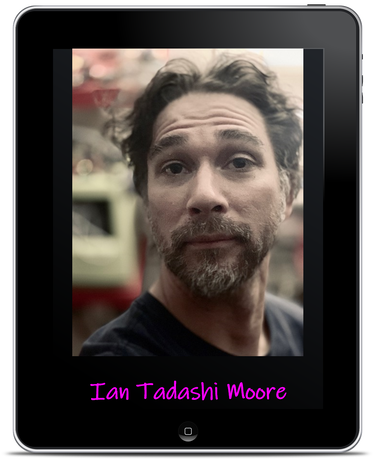 Would you like to get to know more about how the inner book brain of an Indie Author works? This is the place! Periodically, we'll invite an Indie Author to open up their brain, and show us inside. We'll have a conversation that deals a little bit with writing craft, reading influences, and some other fun stuff. Today, we thumb through the pages of Indie Author Ian Tadashi Moore's grey matter... Discover More About Ian Tadashi Moore HERE! What literary pilgrimages have you gone on? I wasn’t sure what this even meant. The closest I’ve gotten to something like this was the summers I spent in Lake Michigan, where I would dive to the bottom of the beaches and watch the waves. It was a big inspiration for parts of my second book, Tamaishi. But I have never gone on some deliberate trip with the purpose of writing enlightenment. What is the first book that made you cry? The first book that comes to mind is The Miraculous Journey of Edward Tulane, but that’s because it was recently when I read it to my son. It struck me that I can’t remember another book that made me cry, although that doesn’t mean it didn’t happen — I just don’t remember. But perhaps no other book really did, because I didn’t read very emotional books and/or I hadn’t lived enough. What is your writing Kryptonite? The internet. It’s a big rat hole of distraction. Do you want each book to stand on its own, or are you trying to build a body of work with connections between each book? I like the idea of having things stand on their own — there’s something satisfying about writing a story that feels a perfect package all unto itself. Even so, my third book has connections to my second, and that was fun. But originally I didn’t set out with that intention. How did publishing your first book change your process of writing? Getting the first book together made me audit my life and what was really important to me, and that instilled the sense that it was indeed possible, even with all the constraints I have. I learned that plotting can be your friend, although I’m still a pantser. As a writer, what would you choose as your mascot/avatar/spirit animal? I never really consider it, but since I’m thinking about it, a parakeet. He was my favorite pet as a kid and I can imagine him sitting on my shoulder as I write. I guess I have a ceramic bird perched my office, so that must be it. What did you edit out of your books? (keep it family-friendly, please) Boring plot points that that didn’t move the story along and confusing elements that didn’t make sense. So many unnecessary words. What one thing would you give up to become a better writer? I’ve already “given up” a lot, because I realized I was spending my time doing a lot of meaningless things when I could be working on books. I can tell you what I would not give up: time with my family. What is your favorite childhood book? The Phantom Tollbooth. It’s what made me want to do this in the first place, however late I may have come around to it. What is the most difficult part of your writing process? Finding an idea. When you begin with the thought that “it’s all been done” it’s difficult to avoid thinking what you’re writing is not worth writing about. I overthink this, and would be better off just writing something everyday. But I also realize my limitations. Right now I’m not a prolific writer, and I may never be. What is the easiest part of your writing process? Sketching images to go with the words. Refining them is another story, but the words always come with images for me. Then it’s a matter of realizing those images, somehow capturing them in “immortalizing” them on “paper”. How long on average does it take you to write a book? If you don’t include illustration it might take 6-8 months for me to write a draft, and revise, revise, revise. With illustrations it looks more like 18-24 months. A common misconception entwined with authors is that they are socially inept, how true is that? I am borderline introvert, but still am extremely extroverted in most situations. I don’t not consider myself at all be socially inept. Awkward, maybe. I do see a lot of writers who are painfully quiet. But I still don’t call that “inept”. That assumes we’re a world of extroverts, and that introversion is the “wrong” way. The personality of a writer is different, and other writers I think understand it. We are perhaps lost in our own thoughts, always working, or dreaming up things. That this clashes with some of the world doesn’t make them inept. When did it dawn on you that you wanted to be an author? I suppose I may have thought about it as early as nine years old, but I gave up on it for other things. It dawned on me again when I was 38. Who are your biggest literary influences? This is a tough one for me, because I don’t consider myself to be widely read. I don’t voraciously read books like so many authors seem to do. Part of that is I’m a dilettante with varied interests that pull me from here to there. But I loved the work of Michael Bond, Peter Mayle, Haruki Murakami, Roald Dahl. I loved the art of Ron Barret, Maurice Sendak, and Richard Guindon. What’s your favorite movie which was based on a book? Why? Also a tough one, as 1) my reading breadth isn’t terribly wide, 2) my movie repertoire is similarly limited. I’ve probably seen more movies than I’ve read books. I’m struggling to even think of all the movies I’ve seen, much less which ones were based off books — which isn’t to say that there have been none. I loved The Joy Luck Club however, but I never actually read the book. But the movie has stuck with me my entire life. I thought To Kill a Mockingbird was a fantastic movie and book — the characters were well played and the movie aesthetically was gorgeously shot. How did it feel when your first book got published? How did you celebrate? I honestly don’t remember what I did. But it may have actually been the first book that made me cry, technically speaking, because I was so overjoyed that I had actually made the thing. What is that one thing you think readers generally don’t know about authors? Authors don’t just magically write books. They do not appear out of thin air and we write them in a day and make money. Not all authors care about making a living or a career out of it. Can you tell us about your current projects? II’m wrapping up my third chapter book, and I’m recording and editing the audiobook version. When that is done I don’t know what will come next. I may try more short stories, maybe take a break and illustrate a book for another author, dream up a graphic novel. Though I find as much as I like to draw, there’s something about how the art bridges the gap between the words that I enjoy, rather than using images to tell the story. I appreciate a good silent graphic novel (such as The Arrival by Shaun Tan), but it is definitely a different kind of storytelling. I can feel other books percolating. I may take a while, though to just read more. Are you attending any conventions/festivals where readers can meet you and/or buy your books? Please provide all the “find it” information. Just Christmas in Clawson in November 2020 currently. I’m planning on entering my book in some a couple of competitions, just to see what happens. Please provide links and/or instructions about how readers can purchase signed copies of your books. Iantm.com/books, and write me at [email protected] Any advice you would like to give to aspiring authors? You get to choose for yourself if you’d rather write for a living or write for other reasons. Don’t let anyone choose that for you. You don’t have to make a career to write. Be honest with yourself about what YOU really want, give yourself time and space to find your voice, and you will.
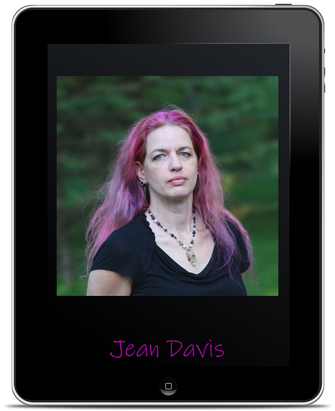 Would you like to get to know more about how the inner book brain of an Indie Author works? This is the place! Periodically, we'll invite an Indie Author to open up their brain, and show us inside. We'll have a conversation that deals a little bit with writing craft, reading influences, and some other fun stuff. Today, we thumb through the pages of Indie Author Jean Davis' grey matter... Discover More About Jean Davis HERE! What literary pilgrimages have you gone on?
My pilgrimage is mostly to my writing room where I attempt to lock myself away for a few hours as often as possible so I can hang out with my fictional creations. I write most effectively on my own so I tend to be a solitary writer rather than seeking out the company of others during the creative process. I do venture out to a bi-weekly critique group though with other humans and beer. What is the first book that made you cry? Oh man, how can I forget. Orson Scott Card’s Songmaster. It is a terribly sad story...and yet so good. What is your writing Kryptonite? When I get stressed out I can’t write. Writing is often relaxing and therapeutic but there’s a threshold of when I can shut everything out and sink into the words. Thankfully I don’t get there too often. When I do, I usually turn to Netflix or reading other people’s books. Do you want each book to stand on its own, or are you trying to build a body of work with connections between each book? My space opera series, The Narvan, takes place in a universe of its own and revolves around the same characters, but each book does have its own resolution. A couple of the short stories in my new collection, Dreams of Stars and Lies take place in The Narvan universe but are entirely unrelated to the series. The rest of my books fall under various Speculative Fiction genres and are entirely standalone. How did publishing your first book change your process of writing? I’d already written twelve other books by the time the first one got published through a small press, so I can’t say that the stage of being published significantly changed my process. The one thing that it did change though was how I format my drafts so I save time later when it comes time to publish. As a writer, what would you choose as your mascot/avatar/spirit animal? My rat terrier, maybe. She gets very excited by whatever she’s playing with and blocks out everything else until she’s done having her fun. What did you edit out of your books?(keep it family-friendly, please) Out of my first book? So very much because I was learning to write as I went and there was so much unnecessary information. Weapons, characters, physical enhancements, world building, alien histories, it all went into a file somewhere on my hard drive, never to be seen again. What one thing would you give up to become a better writer? Lima Beans. Oh wait, I’d give those up any day for no reason. I should probably give up the internet connection on my writing computer so I could be more focused, but I need it for research and book promotion. What is your favorite childhood book? I remember waiting for weeks between each book of the Chronicles of Narnia series because my elementary school library only had one copy of each book. I loved that series and I’d have to call that my point of no return for avid (rabid) reading. What is the most difficult part of your writing process? Getting through the middle of a rough draft. Yeah, that’s the downfall to being a pantser, but I know I can do it so it’s just a matter of slogging through those spots where the creative engine cuts out. What is the easiest part of your writing process? Rewriting. Once I have the bones of the story nailed down with the rough draft, putting flesh on them and weaving it all together is where I really get excited and words happen fast. How long on average does it take you to write a book? A rough draft takes me one to three months. It’s the rewriting and editing that eats up another six to eight months. Sometimes a story just works and it’s ready to go to print from start to finish in a year to eighteen months. Other times it takes years for that editing phase to smooth out all the bumps or for the solutions to plot problems to hit me. A common misconception entwined with authors is that they are socially inept, how true is that? Not very. While it is true that some authors aren’t comfortable with the idea of having to be a salesperson or even just talking to readers at a book signing, the majority of those I’ve met are okay with socializing and are more than happy to talk about their books. When did it dawn on you that you wanted to be an author? In elementary school. I was super shy and didn’t like talking to people but I could write and communicate that way. I was very fortunate to have several supportive teachers along they way that offered enough encouragement to keep me at it until the fires were fully lit. Who are your biggest literary influences? Frank Herbert, Steven Brust and Orson Scott Card, Mercedes Lackey and C. J. Cherryh. What’s your favorite movie which was based on a book? Why? Dune. Love the movie. Love the book. The entire series, really, but I digress. Frank Herbert created an amazing universe and filled it with memorable characters. The movie brought it all to life. I’m cautiously optimistic about the new Dune movie. How did it feel when your first book got published? How did you celebrate? Holding my first book in my hand was gratifying. I’d had several short stories published before the book so I wasn’t quite as when I’d held that first magazine with my name on the cover years before that, but I did have a definite sense of accomplishment. I used my advance toward buying my comfy writing chair to celebrate. What is that one thing you think readers generally don’t know about authors? If you’re going to make me pick just one I’d have to go with how little authors get paid. Not only do many readers want a free or .99 book but they don’t realize that creating that book may have taken months or years and countless hours, tears, and bouts of depression and frustration, or how much of a percentage retailers take. We greatly appreciate everyone that supports authors by buying their books. Can you tell us about your current projects? I’m currently wrapping up the final round of edits on Bound in Blue, the third book in the Narvan series, co-authoring a YA book, and ironing out the plot in a rough draft of a YA Fantasy novel I started last year. No time for boredom around here! Are you attending any conventions/festivals where readers can meet you and/or buy your books? Please provide all the “find it” information. That’s all kind of up in the air right now but I hope so. I had book signing events scheduled all year and so far everything has been cancelled since February. If all goes well, I’ll be selling and signing books at the following events: August 8-9 at the Blueberry Festival in South Haven, MI August 21 at the Tulip City Comic Con in Holland, mI Sept 5-7 at the Newaygo Logging Festival in Newaygo, MI Sept 19 at the Monroe Pop Fest in Monroe, MI Nov 13-15 at the Grand Rapids Comic Con in Grand Rapids, MI Please provide links and/or instructions about how readers can purchase signed copies of your books. You can find information on all of my books on Amazon. https://www.amazon.com/Jean-Davis/e/B00UY4XNEC If you would like to purchase signed copies, I sell them at the same price as Amazon and ship books direct within the US for $1 per book. You can contact me by email: [email protected]. Any advice you would like to give to aspiring authors? You’ll never have the chance to publish anything unless you finish it. Don’t expect anyone to edit your work with as much care as you should before sending it to them. I’m always amazed by how many aspiring authors think they can just pound out a draft and someone else will be grateful to clean it up. You’ll either be paying an editor a fortune or be collecting rejections because no one will read past the first full page of typos. 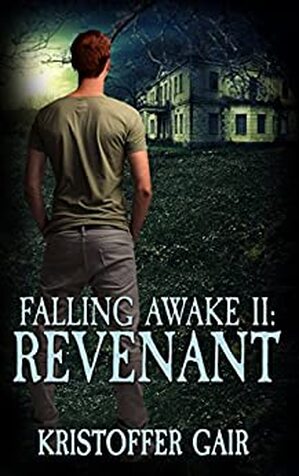 Find This Book On Amazon Find This Book On Amazon I love the Indie Author Community SO much at times, I can hardly contain my enthusiasm for their skills and imaginations. This book is another in a stack of scream-it-from-the rooftops-good books that you need to know about. This is the second book in the Falling Awake series; Revenant, by Kristoffer Gair. After reading the first book, Falling Awake, which I found to be mystically touching, I thought I knew what I was going to get with the second. I was wrong... and never have I been more pleased to discover just how wrong I can be! This is a supernatural thriller, perhaps occasionally crossing over into horror, and back again... and yet the focus is always on the relationships. This is what I love best about Kristoffer's writing. Everything he writes, even the spooky, creepy stuff, is completely accessible and relatable - well, maybe not the bludgeoning stuff - but everything else is totally relatable (I'm not a fan of bludgeoning; I'm a wimp by nature). In both books, the primary reason for the action is the emotional and spiritual connection that binds the characters... whether that connection is adversarial, cooperative, or innocent. The evil elements that subvert peace and well-being are scary, to say the least. Kristoffer writes about their misdeeds in such a way that you are given enough details to make the hair stand up on the back of your neck and constantly look over your shoulder, but he doesn't dial up the creep factor so much as to make you avoid the scene. You NEED those details, in spite of yourself. You are compelled to turn page after page, no matter the outcome, because you KNOW that there is a bigger, scarier shadow that will follow you, if you don't. For those of you who think this stuff might be important (it's not, by the way), the main character of this book is a homosexual man in the 70s; who has a special connectivity to people... and can perceive things about them that they may not know themselves. This gift helps him to walk a path that brings him some closure... but not quite enough... to alleviate the nightmares of a tragedy from his past. Here's what I love best about this book, though... yes, the main character is gay... yes, there are scenes that depict his relationships and encounters with other men... but it's NORMAL. This is not a book that forces a sociological or political agenda. Yes, there is a tender, loving relationship at the heart of this book... a few of them, in fact, both heterosexual and homosexual... and it's a non-issue. I would never classify this book as "gay fiction". To me, that's just a small part of the story, not worth specific attention... the story, however, IS worth ALL the attention! The spooky parts of the story... the tender tidbits that make you realize these are whole people, not just foils... the weird scavenger hunt the main character must endure to find the answers he seeks... the creepy bits of edge-of-your-seat stuff that pull you through to those last few pages of the Epilogue, where you expect a full explanation, and are delighted to discover those details are withheld... those are the parts that make this book so worthwhile. But... leave the lights on, and lock the windows... also, you might want to keep a tire iron nearby - just in case. Thank you, Kristioffer Gair, for an unexpected adventure. I'm looking forward to the next book in the series - which for me, is not a small thing! Learn more about Kristoffer Gair's work HERE Watch our episode with Kristoffer Gair on Indie Reads TV
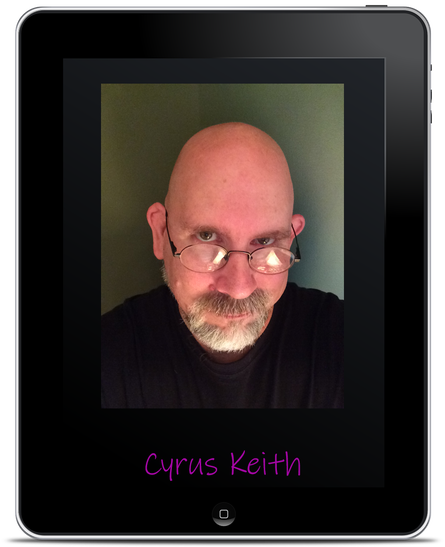 Would you like to get to know more about how the inner book brain of an Indie Author works? This is the place! Periodically, we'll invite an Indie Author to open up their brain, and show us inside. We'll have a conversation that deals a little bit with writing craft, reading influences, and some other fun stuff. Today, we thumb through the pages of Indie Author Cyrus Keith's grey matter... Discover More About Cyrus Keith HERE! What literary pilgrimages have you gone on?
I have actually visited several critical sites from my series and taken pictures for photo tours of my books. What is the first book that made you cry? I got choked up in Black Beauty when Beauty sees Ginger being carted off on a wagon. What is your writing Kryptonite? That’s a pretty broad term. Closest I can come to, is this one: The word “just” sneaks in way too much, and I have to choke it off manually in edits. It’s verbal kudzu. Do you want each book to stand on its own, or are you trying to build a body of work with connections between each book? I actually hate writing series. But I found myself roped into it by my characters. I firmly believe each book should stand on its own as a complete story, whether it’s part of a series or a strict standalone. How did publishing your first book change your process of writing? It made me more conscious of my bad habits, through the lessons learned from my editing team. I pay more attention to those pitfalls and bad writing habits, and do my best to avoid them. As a writer, what would you choose as your mascot/avatar/spirit animal? Dragon, of course. I like dragons, mainly the Western European variety of quadrupedal, winged creatures. No direct connection to my writing. But if I had a mascot it would be a dragon. What did you edit out of your books? (keep it family-friendly, please) Duplication of recurring, redundant repetition. What one thing would you give up to become a better writer? Forty pounds. And if you think that’s a pat answer, think about it for a while. I would give up forty pounds to become a better writer. What is your favorite childhood book? I have two: Black Beauty by Anna Sewell, and Have Spacesuit:Will Travel by R.A. Heinlein. They are both so vivid in their descriptions and dialogue, they sucked me in and kept me locked inside their worlds for the duration of the read. They are also the first two books I finished in one day each. What is the most difficult part of your writing process? Generating a usable first draft. What is the easiest part of your writing process? Seeing the story in my head. How long on average does it take you to write a book? Too long. I want to get it down to one year, but I have a long way to go. A common misconception entwined with authors is that they are socially inept, how true is that? *Mumbles incoherently, avoids first contact at all costs, fights panic attacks at all social events, sits against the wall hoping not to be noticed* I have no idea what you’re talking about. When did it dawn on you that you wanted to be an author? When I was seven years old, I wrote comic strips using my pet gerbils as heroes. So the writing bug has pretty much been with me all along. But it didn’t bite hard until I was forty-three. Who are your biggest literary influences? Andre Norton, Robert A. Heinlein, and Louis L’Amour. Their worlds are alive, the characters deep and honest, and they are escape artists par excellence. What’s your favorite movie which was based on a book? Why? Yeah, it has to be The Lord of the Rings, Peter Jackson style. At the risk of being seen as going with the crowd, it came across to me as very true to the books without just being a direct quote. How did it feel when your first book got published? How did you celebrate? Hopeful and enthusiastic. Little did I know there’s a huge difference between writing a book, and selling books. What is that one thing you think readers generally don’t know about authors? How blastedly hard it is to write a book, and how critical it is when one is in the groove. The immense amount of concentration it requires to get a thought in coherent form on a page. Can you tell us about your current projects? My current WIP is called Hush Little Baby. The title came as a study of taking innocent phrases and twisting the concept. So my main character is a schizophrenic homeless woman who has to keep a very special baby safe from an army of skinwalkers who are hunting him for a dark purpose. Are you attending any conventions/festivals where readers can meet you and/or buy your books? Please provide all the “find it” information. With all the cancellations in 2020, we’re pretty empty this year, save for the Mendon Farmer’s Market on September 7th in Reeds Riverside Park in Mendon, Michigan. After that, I’ll be at the Southwest Michigan Fandom Fest on April 17th, 2021: https://www.facebook.com/swmfandomfest/ Please provide links and/or instructions about how readers can purchase signed copies of your books. Thank you. You can download an order form at the following link (Instructions are on the form) https://cyruskeith.wordpress.com/book-orders/ Any advice you would like to give to aspiring authors? Don’t quit, and don’t let any naysayers have the final word. You’re not everyone’s cup of tea, so don’t let someone else’s disapproval dictate who and what you are. Be that maverick, that rogue, that scoundrel that proves them wrong. And don’t you DARE quit! |
WelcomeYou'll find some interesting stuff here... some Op Eds, some Information, Book Reviews, and More. Poke around the categories and see what ruffles your feathers... in a good way! Archives
July 2024
Categories
All
|
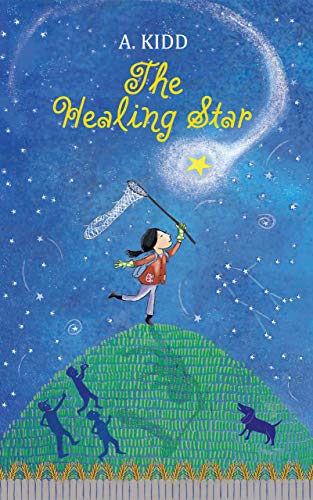
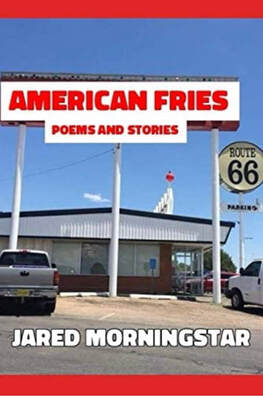
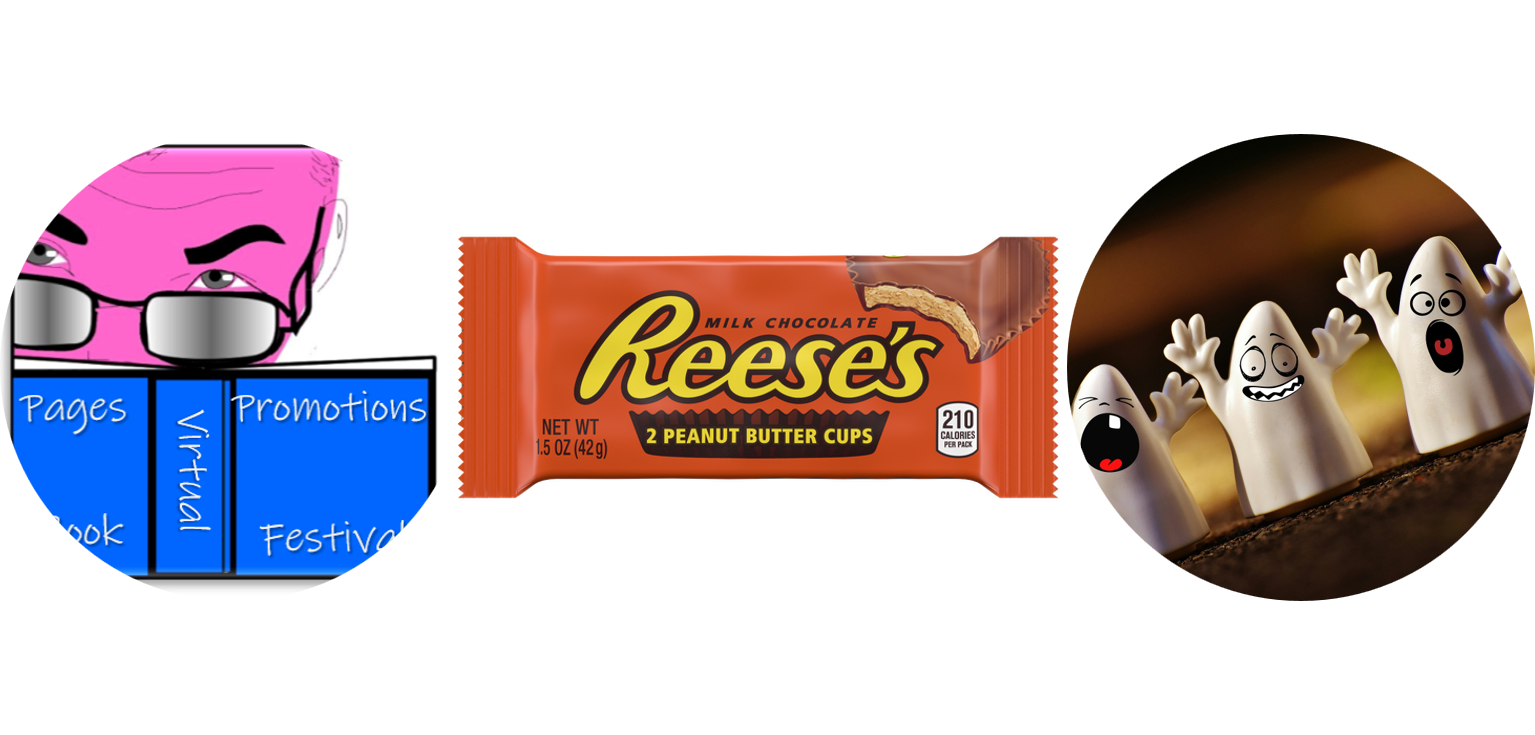
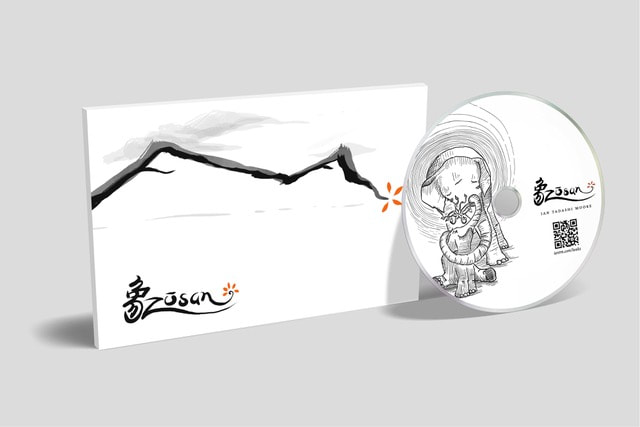
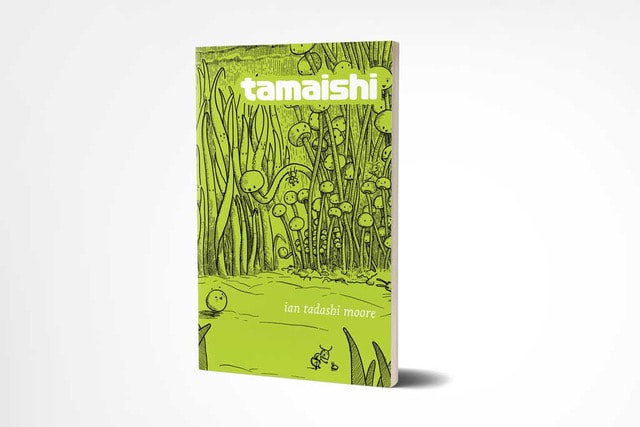
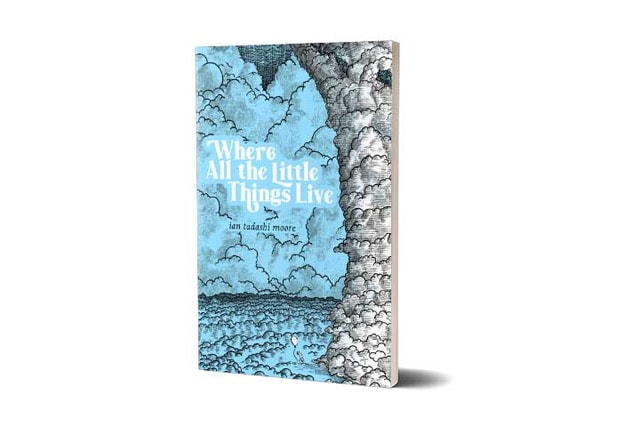
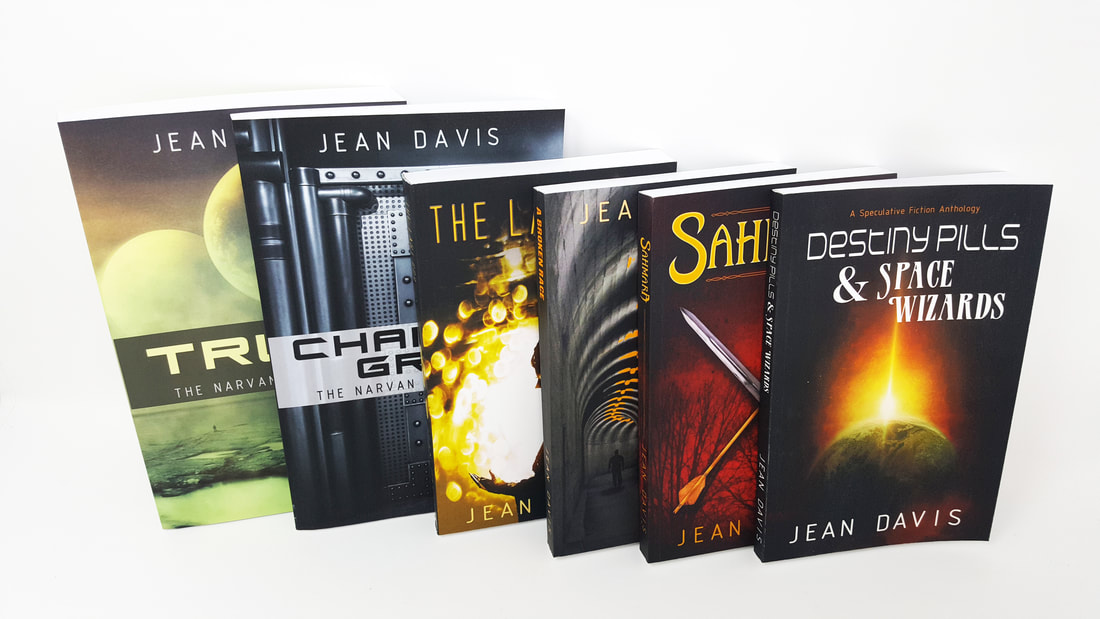
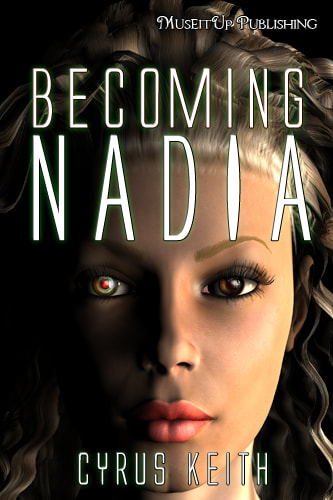
 RSS Feed
RSS Feed